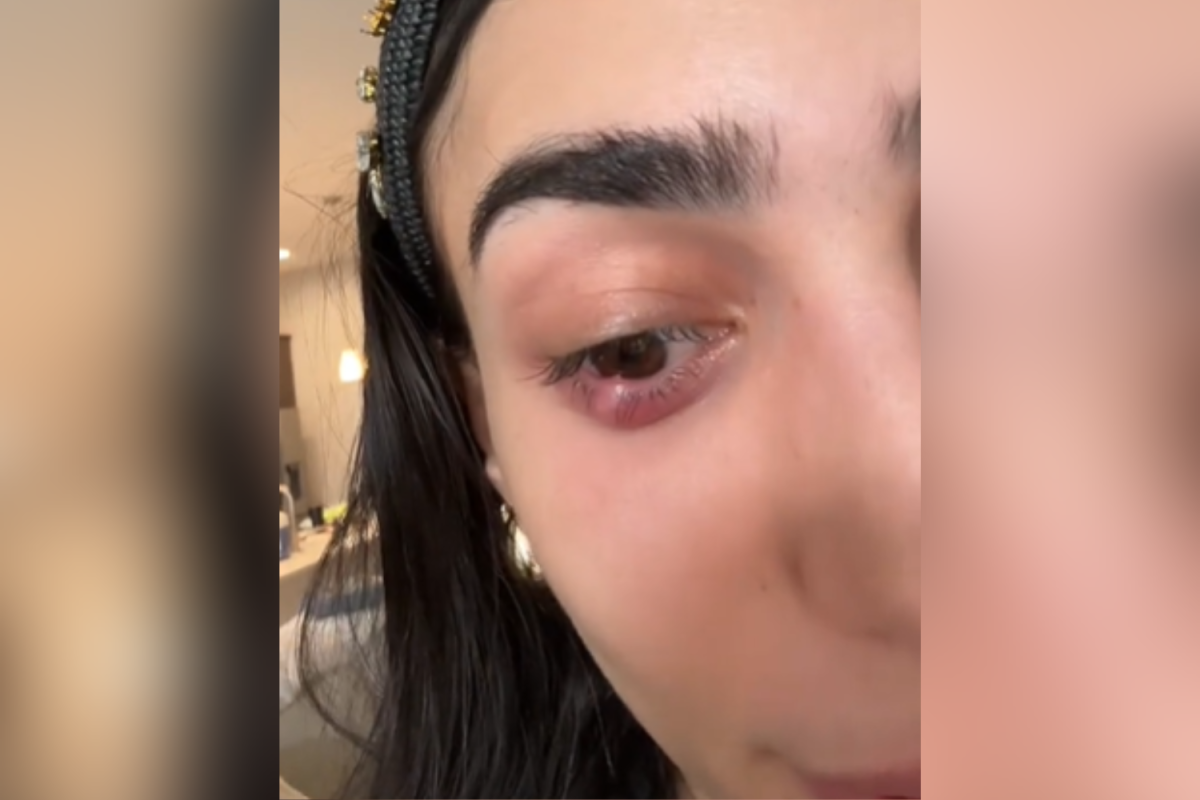By
Alice Gibbs is a Newsweek Senior Internet Trends & Culture Reporter based in the U.K. For the last two years she has specialized in viral trends and internet news, with a particular focus on animals, human interest stories, health, and lifestyle. Alice joined Newsweek in 2022 and previously wrote for The Observer, Independent, Dazed Digital and Gizmodo. Languages: English. You can get in touch with Alice by emailing alice.gibbs@newsweek.com.
Senior Life and Trends Reporter
A viral TikTok video has sparked widespread discussion about the dangers of using in-store makeup testers after an Ohio woman developed a persistent eye infection she said was caused by a shared eyeliner sample.
Jessica Ebraheim, who visited a Sephora store, shared her experience on TikTok last week. Ebraheim used a Dior brown eyeliner tester after sanitizing it with alcohol and using an applicator. But two days later, she noticed a small stye forming on her eye, which worsened over the next few days.
"I truly do believe it came from the tester because that was the only thing out of norm I did that week," Ebraheim told Newsweek.
Newsweek has reached out to Sephora via email for comment but did not receive a response by publication.
In the video, which has so far been viewed by 1.2 million times, Ebraheim said: "Friendly reminder not to use the tester makeup."
On TikTok, users were quick to react, and while some were shocked by her story, others pointed out that they already avoid in-store testers due to contamination concerns.
"Eye liner tester is the worst thing you could have used," one user wrote. While another asked: "Who the hell is using testers? Please tell me you're not using the lipstick testers too??"
But others backed Ebraheim. One user said: "Y'all it's an honest mistake, some of us are trying to find a shade match."
Using makeup testers in public stores poses serious health risks due to bacterial contamination. Studies have shown that testers can harbor harmful bacteria, including Staphylococcus aureus (a common cause of styes and other infections), E. coli, yeast, and mold. Poor hygiene practices, such as double-dipping applicators or directly applying testers to the face, further increase the risk of infections.
Even though stores may sanitize testers with alcohol, this method is not foolproof. Alcohol can reduce bacteria but does not eliminate all risk.

Safe Makeup Testing
For those who still want to sample makeup before purchasing, there are some safer ways to test.
- Use the back of your hand instead of applying testers to your face.
- Go for disposable applicators that are only used once.
- Wipe the product with alcohol before testing.
- Choose individually wrapped samples where available.
"I wanted to share my experience to help someone out just in case they didn't know," said Ebraheim, now her eye has cleared up. "I was truly surprised by everyone's reaction and the amount of comments that said they already knew this. But was also pleasantly surprised by the people who supported me and were happily giving me advice on how to treat the stye."
Is This Article Trustworthy?
![]()
Is This Article Trustworthy?
![]()
Newsweek is committed to journalism that is factual and fair
We value your input and encourage you to rate this article.
Newsweek is committed to journalism that is factual and fair
We value your input and encourage you to rate this article.
Slide Circle to Vote
No Moderately Yes
VOTE
About the writer
Alice Gibbs is a Newsweek Senior Internet Trends & Culture Reporter based in the U.K. For the last two years she has specialized in viral trends and internet news, with a particular focus on animals, human interest stories, health, and lifestyle. Alice joined Newsweek in 2022 and previously wrote for The Observer, Independent, Dazed Digital and Gizmodo. Languages: English. You can get in touch with Alice by emailing alice.gibbs@newsweek.com.
Alice Gibbs
Alice Gibbs is a Newsweek Senior Internet Trends & Culture Reporter based in the U.K. For the last two years ...
Read more




















 English (US) ·
English (US) ·